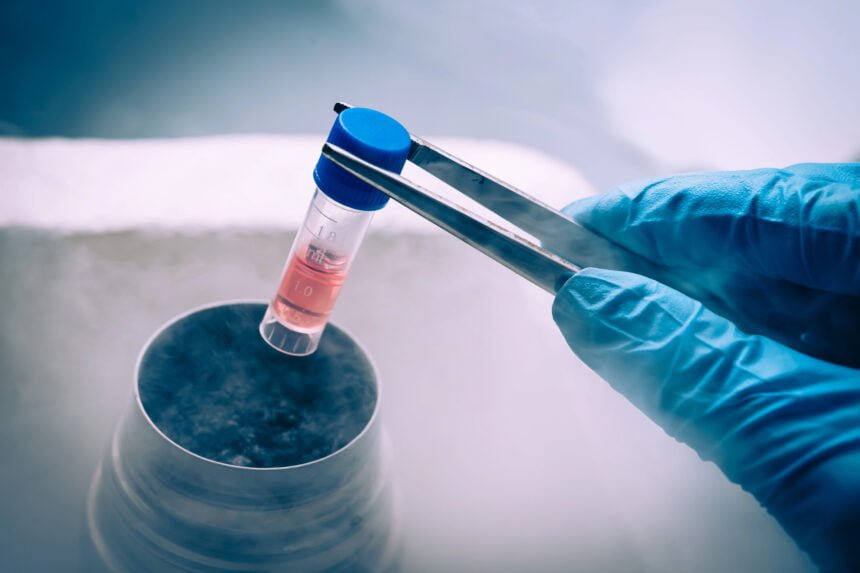Imagine a world where damaged tissues and organs can be healed by the human body itself. This is the promise of stem cell research. Stem cells are unique because they have the potential to develop into many different cell types in the body. This ability makes them incredibly valuable for medical research and treatment.
- The Pioneers
- Innovative Leaders
- Breakthroughs and Contributions
- James Thomson’s Medical Advancements
- Shinya Yamanaka’s Impact on Disease Research
- Dr. Elaine Fuchs’ Contributions to Cancer Research
- Dr. George Daley’s Advancements in Blood Disorder Treatments
- Future of Stem Cell Research
- Ongoing Research and Potential Applications
- Challenges and Ethical Considerations
- The Role of Collaboration and Funding
- Conclusion
Stem cell research has come a long way since its inception. It began in the early 20th century, when scientists discovered that certain cells could transform into other types of cells. However, it wasn’t until the 1960s that the first true stem cells were identified in mice. Since then, research has exploded, leading to groundbreaking discoveries and treatments for various diseases.
The Pioneers
James Thomson
James Thomson, an American developmental biologist, is one of the most crucial figures in stem cell research. In 1998, he made history by deriving the first human embryonic stem cell line. This groundbreaking achievement opened the door to a new era in medicine and research. Thomson’s work provided scientists with a powerful tool to study human development and disease.
Thomson’s research has had far-reaching implications. His work laid the foundation for regenerative medicine, a field that aims to replace or regenerate damaged tissues and organs. By studying stem cells, researchers can better understand diseases like Parkinson’s, diabetes, and heart disease. Thomson’s contributions have not only advanced scientific knowledge but also brought hope to millions of patients worldwide.
Shinya Yamanaka
Shinya Yamanaka, a Japanese scientist, revolutionized stem cell research with his discovery of induced pluripotent stem cells (iPSCs). In 2006, Yamanaka and his team showed that adult cells could be reprogrammed to become pluripotent, meaning they could develop into any cell type. This breakthrough was a game-changer, as it provided an alternative to using embryonic stem cells, which are controversial and ethically debated.
Yamanaka’s work has had a profound impact on the field. iPSCs have become a vital tool for studying diseases, developing new treatments, and testing drugs. In recognition of his groundbreaking research, Yamanaka was awarded the Nobel Prize in Physiology or Medicine in 2012, alongside Sir John Gurdon. His discovery has paved the way for countless advancements in stem cell research and regenerative medicine.
Innovative Leaders
Dr. Elaine Fuchs
Dr. Elaine Fuchs is a prominent figure in the field of stem cell research, known for her work on skin stem cells. Fuchs’ research has provided valuable insights into how stem cells maintain and repair tissues. Her studies have revealed the complex mechanisms that regulate stem cell behavior, shedding light on processes like wound healing and cancer development.
Fuchs’ work has significant implications for regenerative medicine. By understanding how skin stem cells function, researchers can develop new treatments for skin disorders, burns, and other injuries. Fuchs’ contributions have not only advanced scientific knowledge but also brought hope to patients suffering from debilitating conditions.
Dr. George Daley
Dr. George Daley is a leading scientist in stem cell research, known for his work on hematopoietic stem cells (HSCs). These cells give rise to all blood cell types and are crucial for treating blood disorders like leukemia and lymphoma. Daley’s research has focused on understanding the biology of HSCs and developing new therapies for blood-related diseases.
Daley’s work has led to significant advancements in the field. He has been involved in developing techniques to generate HSCs from iPSCs, providing new options for patients who need bone marrow transplants. Daley’s contributions have the potential to revolutionize the treatment of blood disorders and improve the lives of countless patients.
Breakthroughs and Contributions
James Thomson’s Medical Advancements
James Thomson’s work on embryonic stem cells has led to numerous medical advancements. One of the most significant applications is in the field of regenerative medicine. Researchers are exploring ways to use embryonic stem cells to repair damaged tissues and organs. For example, scientists are developing treatments to regenerate heart tissue after a heart attack or replace damaged neurons in patients with Parkinson’s disease.
Thomson’s research has also contributed to drug discovery and testing. By creating stem cell lines that mimic specific diseases, researchers can study the effects of new drugs in a controlled environment. This approach has the potential to accelerate the development of new treatments and improve patient outcomes.
Shinya Yamanaka’s Impact on Disease Research
Shinya Yamanaka’s discovery of iPSCs has revolutionized disease research. iPSCs can be generated from a patient’s own cells, providing a unique opportunity to study diseases in a personalized manner. For example, researchers can create iPSC lines from patients with genetic disorders like cystic fibrosis or muscular dystrophy. By studying these cells, scientists can gain insights into disease mechanisms and identify potential therapeutic targets.
Yamanaka’s work has also facilitated the development of personalized medicine. Using iPSCs, researchers can test the effectiveness of different drugs on a patient’s cells before administering them. This approach allows for more targeted and effective treatments, reducing the risk of adverse side effects.
Dr. Elaine Fuchs’ Contributions to Cancer Research
Dr. Elaine Fuchs’ research on skin stem cells has provided valuable insights into cancer development. Fuchs and her team have discovered that certain mutations in stem cells can lead to uncontrolled cell growth and tumor formation. By understanding the underlying mechanisms of cancer, researchers can develop new strategies for early detection and treatment.
Fuchs’ work has also contributed to the development of targeted therapies. By identifying specific pathways involved in cancer growth, researchers can design drugs that selectively target cancer cells while sparing healthy cells. This approach has the potential to improve treatment outcomes and reduce the side effects of traditional chemotherapy.
Dr. George Daley’s Advancements in Blood Disorder Treatments
Dr. George Daley’s research on hematopoietic stem cells has led to significant advancements in the treatment of blood disorders. One of the most notable achievements is the development of techniques to generate HSCs from iPSCs. This breakthrough has the potential to provide new treatment options for patients who need bone marrow transplants but cannot find a suitable donor.
Daley’s work has also contributed to the development of gene therapies for blood disorders. By editing the genes of HSCs, researchers can correct genetic mutations that cause diseases like sickle cell anemia and beta-thalassemia. These advancements have the potential to cure patients with these debilitating conditions and improve their quality of life.
Future of Stem Cell Research
Ongoing Research and Potential Applications
The future of stem cell research is incredibly promising. Scientists are continually exploring new ways to harness the power of stem cells for medical applications. One area of ongoing research is the development of organoids—miniature, simplified versions of organs grown in the lab. Organoids provide a valuable tool for studying organ development, disease mechanisms, and drug testing.
Another exciting area of research is the use of stem cells for regenerative medicine. Scientists are developing techniques to repair or replace damaged tissues and organs using stem cells. For example, researchers are working on creating bioengineered tissues for heart, liver, and kidney transplants. These advancements have the potential to revolutionize the field of organ transplantation and address the shortage of donor organs.
Challenges and Ethical Considerations
Despite the tremendous progress in stem cell research, several challenges and ethical considerations remain. One of the primary challenges is ensuring the safety and efficacy of stem cell-based therapies. Researchers must carefully evaluate the potential risks and benefits of these treatments before they can be widely used in clinical practice.
Ethical considerations also play a significant role in stem cell research. The use of embryonic stem cells has been a topic of controversy due to ethical concerns surrounding the destruction of embryos. While the discovery of iPSCs has provided an alternative, ethical considerations still arise regarding the use of human tissues and genetic manipulation.
The Role of Collaboration and Funding
The future of stem cell research and stem cell injections depends on collaboration and funding. Researchers, clinicians, and policymakers must work together to address the challenges and advance the field. Collaborative efforts can facilitate the exchange of knowledge, resources, and expertise, accelerating the development of new treatments and therapies.
Funding is also crucial for the continued progress of stem cell research. Governments, private organizations, and philanthropic foundations play a vital role in supporting research initiatives. Adequate funding ensures that scientists have the necessary resources to conduct high-quality research and translate their findings into clinical applications.
Conclusion
Stem cell research has come a long way since its inception, thanks to the contributions of remarkable individuals. From the pioneering work of James Thomson and Shinya Yamanaka to the innovative research of Dr. Elaine Fuchs and Dr. George Daley, these scientists have transformed the field and brought hope to millions of patients worldwide.
As we look to the future, it’s essential to recognize the significance of stem cell research in improving human health and well-being. By supporting research initiatives and staying informed about the latest advancements, we can contribute to the continued progress of this transformative field!







_9_2.jpg)